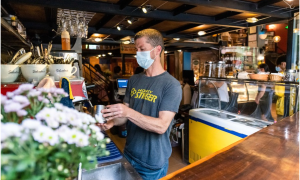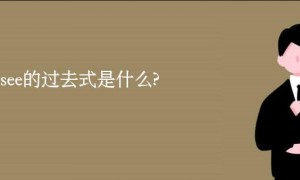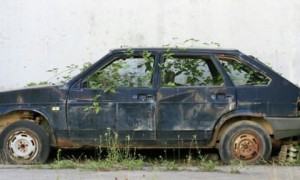see sb/sth to/ -v, see sb/sth v-ing, see sb/sth v-ed
see可接以动词不定式、现在分词、过去分词充当补足语的复合宾语,但意义上有区别:
1.接动词不定式时表示动作的全过程; 接现在分词只表示动作过程的一部分; 而接过去分词则表示已经完成的动作,含有被动意义。例如:
I saw her put the key in the lock, turn it and open the door.我看见她把钥匙插进锁眼,转动钥匙,把门打开。
I saw the train coming into the station.我看见火车开进站来。
He saw the man knocked down by a car.他看到那男子被汽车撞倒了。
2.有时动词不定式单纯表示事实,而现在分词则具有描写色彩。试比较:
We saw the sun rise.
我们看见了日出。
We saw the sun rising behind the trees.
我们看见太阳从树后出来。
see, call, drop in, visit
这组词均有“拜访”之意。它们之间的区别是:
1.从语气上说:visit是正式用语; call比较正式; drop in则是日常用语,有“顺便”“不定期”的意味; see一般用于亲友间的访问。例如:
The foreign delegation is visiting in Beijing.外国代表团正在北京访问。
The Britain Ambassador called on Premier Zhou Enlai yesterday.英国大使昨天拜会了周恩来总理。
He sometimes drops in to see me in the evening.他有时晚上来看我。
I'll go to see my parents tomorrow.明天我要去看望父母。
2.在使用场合上:call和visit都可用于社交和公务,但医生到病人家出诊则要用visit。例如:
I visited〔called〕 on the foreign guests yesterday.昨天我走访了外国客人。
In China, restaurant and hotel kitchens are visited〔called〕 on regularly by officers of public health.在中国,卫生人员经常检查饭店和旅馆的厨房。
The doctor is out.He went to visit an emergency case.医生不在。他有急病号,出诊去了。
3.call的时间一般都很短暂,而visit逗留的时间则较长。试比较以下两个句子:
I shall call on you this afternoon.
今天下午我去拜访您。
When he visited us last year he told us a story every evening.
去年他来我们这儿作客时,每晚都给 我们讲一个故事。
4.visit在英国较少用,一般情况下都用call。如果用了visit,则含有“逗留几天”或“出于公务〔职务〕的要求”的意思。
5.社交场合用的“名片”英美说法不同。美国称calling card,英国称visiting card。
see, look, watch
这三个词都有“看”的意思。它们的区别是:
look指有意识的“动作”;see指有意或无意的“结果”;watch则指有意识地以期待、警觉等心情看上一段时间。例如:
We looked but saw nothing.我们看了,可是什么也没看到。
They are watching a TV play.他们在看电视剧。
see, eye
这两个词共同的意思是“看”。它们的区别是:
1.see强调看到的结果。
2.eye则带有某种感情色彩,如“瞪着眼睛看”等。例如:
She eyed him from top to toe.她从头到脚打量他。
They eyed each other's newly bought shoes.他们看着彼此新买的鞋。
see, observe, perceive
这三个词都可表示“察觉”。它们之间的区别是:see是一般用语,指意识到眼前的东西,但不一定有意去注意或加以识别; perceive是正式用语,含有有意识地去注意或识别所见东西的意思; observe则表示有意识地察看。试比较以下三个句子的含义:
I saw someone standing in the doorway.
我看到有人站在门口。
We perceived the figure to be your room- mate.
我们察觉那个人就是你的室友。
We observed a change in her.
我们注意到她有了某种变化。
see, appreciate, comprehend, understand
这组词都有“明白”或“理解”的意思。它们的区别在于:
1.see的基本意思可指一般视觉的“看见”,也可指有意识地“观察”,引申可表示由观察而“领会”“理解”。
2.comprehend指用智力充分而完全地理解事物的内在含义。例如:
The child read the story but didn't comprehend its full meaning.那孩子看了这篇故事,但没有理解它的全部意思。
If you can use a word correctly and effectively you comprehend it.如果你能正确、有效地使用一个词,你就是了解它了。
3.understand则是明白别人说的话,完全了解某种事实。例如:
My wife doesn't understand me.我的妻子不理解我。
I've read the letter but I don't understand it.这封信我已经看过了,可是看不懂。
4.appreciate指对某物有较深的理解能力,强调“欣赏”。例如:
She appreciated a work of art.她欣赏一件艺术品。
I am incapable of appreciating classical music.我不会欣赏古典音乐。
下面两句意思有细微区别:
Seeing is believing.
眼见为实。
To see is to believe.
见后就会相信。
call on,see,visit,drop in
这些动词或词组都含有“拜访,访问”之意。
call on社交上的正式用语,指无目的、礼节性的短暂拜访,访问者与被访问者之间一般只有社交或公务关系。
see常用词,含义广泛,既可指接受他人来访,又可指去访问他人。
visit正式用词,强调出于工作需要的访问,也指亲戚朋友间的看望。
drop in多指在计划之外或事先未打招呼的偶然、顺便访问。也可指参观。
look,see,watch,observe,witness
这些动词均有“看”之意。
look侧重“看”的动作。
see指看见。
watch指用眼睛跟随某物,以便对每一个变化、运动等进行观察。
observe侧重以客观的态度进行观察。
witness指当场看见,亲眼看见。










